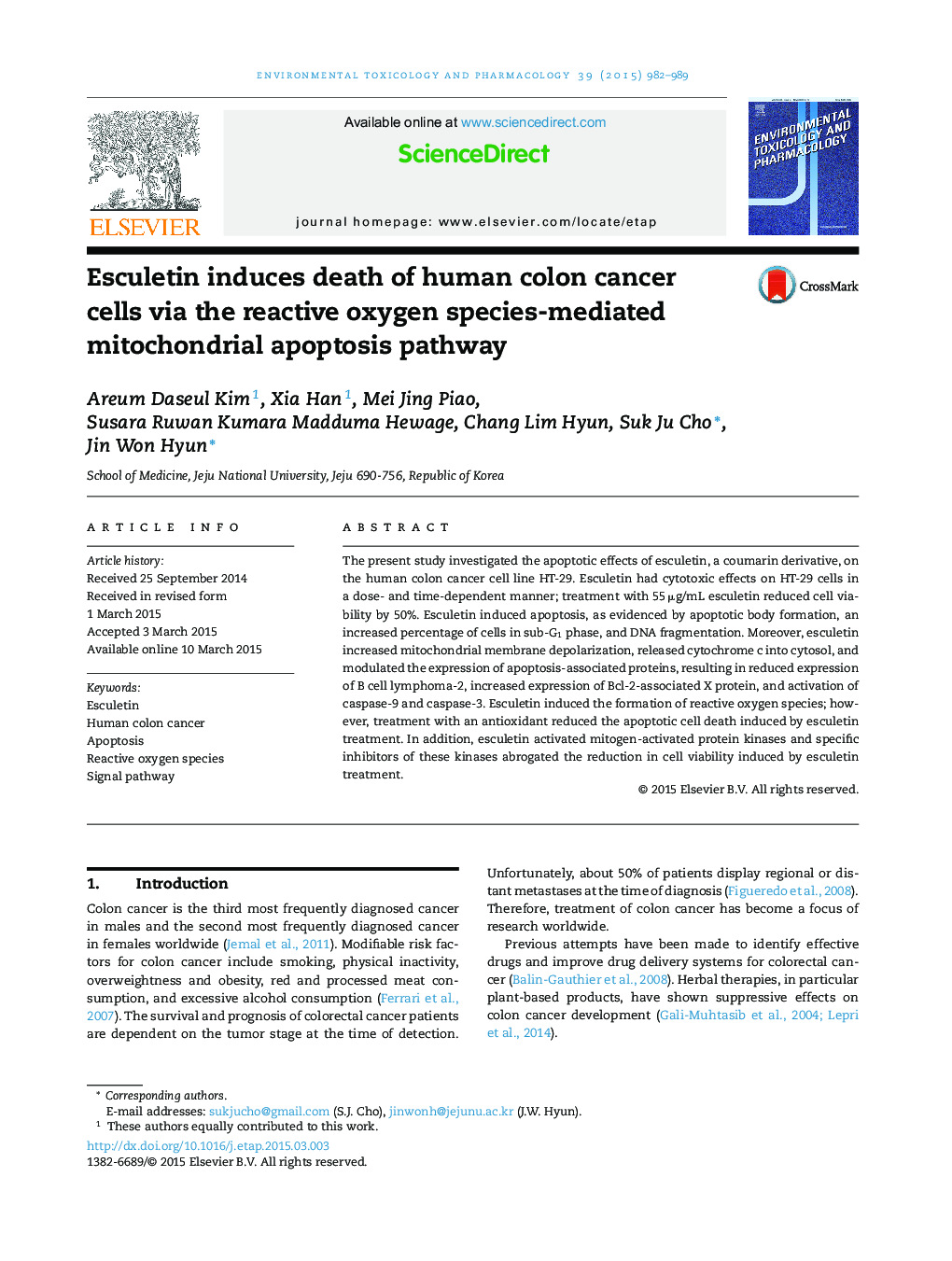| Article ID | Journal | Published Year | Pages | File Type |
|---|---|---|---|---|
| 5848880 | Environmental Toxicology and Pharmacology | 2015 | 8 Pages |
Abstract
The present study investigated the apoptotic effects of esculetin, a coumarin derivative, on the human colon cancer cell line HT-29. Esculetin had cytotoxic effects on HT-29 cells in a dose- and time-dependent manner; treatment with 55 μg/mL esculetin reduced cell viability by 50%. Esculetin induced apoptosis, as evidenced by apoptotic body formation, an increased percentage of cells in sub-G1 phase, and DNA fragmentation. Moreover, esculetin increased mitochondrial membrane depolarization, released cytochrome c into cytosol, and modulated the expression of apoptosis-associated proteins, resulting in reduced expression of B cell lymphoma-2, increased expression of Bcl-2-associated X protein, and activation of caspase-9 and caspase-3. Esculetin induced the formation of reactive oxygen species; however, treatment with an antioxidant reduced the apoptotic cell death induced by esculetin treatment. In addition, esculetin activated mitogen-activated protein kinases and specific inhibitors of these kinases abrogated the reduction in cell viability induced by esculetin treatment.
Related Topics
Life Sciences
Environmental Science
Health, Toxicology and Mutagenesis
Authors
Areum Daseul Kim, Xia Han, Mei Jing Piao, Susara Ruwan Kumara Madduma Hewage, Chang Lim Hyun, Suk Ju Cho, Jin Won Hyun,
